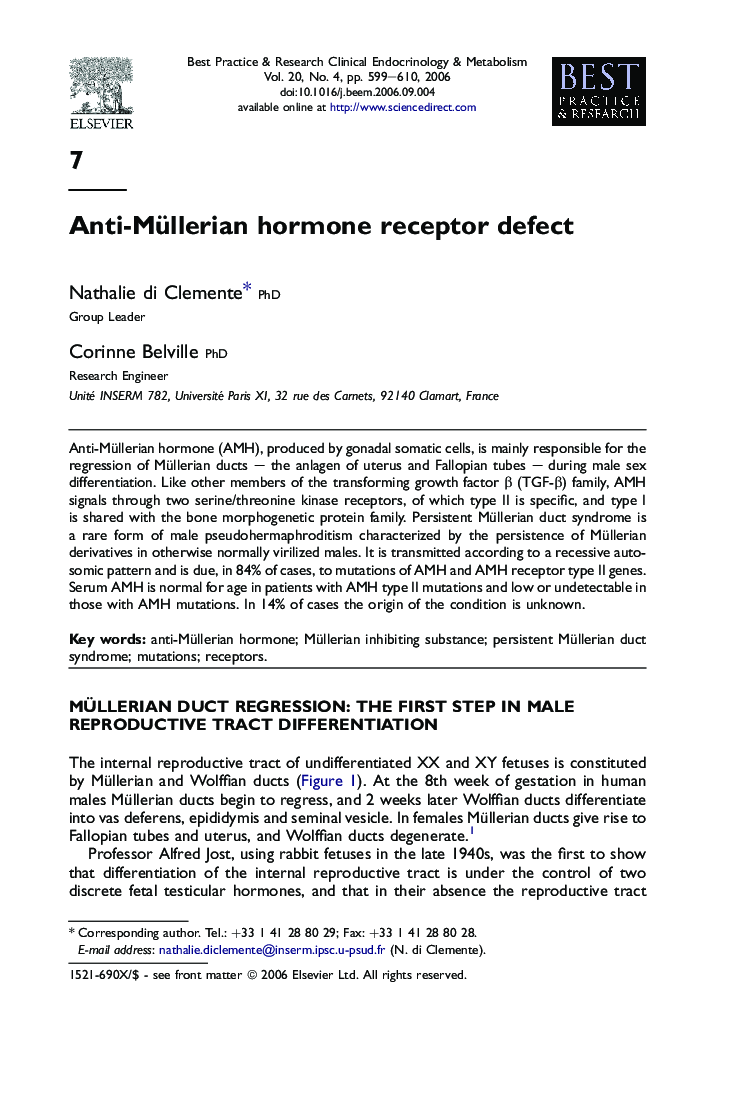| Article ID | Journal | Published Year | Pages | File Type |
|---|---|---|---|---|
| 2792268 | Best Practice & Research Clinical Endocrinology & Metabolism | 2006 | 12 Pages |
Anti-Müllerian hormone (AMH), produced by gonadal somatic cells, is mainly responsible for the regression of Müllerian ducts – the anlagen of uterus and Fallopian tubes – during male sex differentiation. Like other members of the transforming growth factor β (TGF-β) family, AMH signals through two serine/threonine kinase receptors, of which type II is specific, and type I is shared with the bone morphogenetic protein family. Persistent Müllerian duct syndrome is a rare form of male pseudohermaphroditism characterized by the persistence of Müllerian derivatives in otherwise normally virilized males. It is transmitted according to a recessive autosomic pattern and is due, in 84% of cases, to mutations of AMH and AMH receptor type II genes. Serum AMH is normal for age in patients with AMH type II mutations and low or undetectable in those with AMH mutations. In 14% of cases the origin of the condition is unknown.
